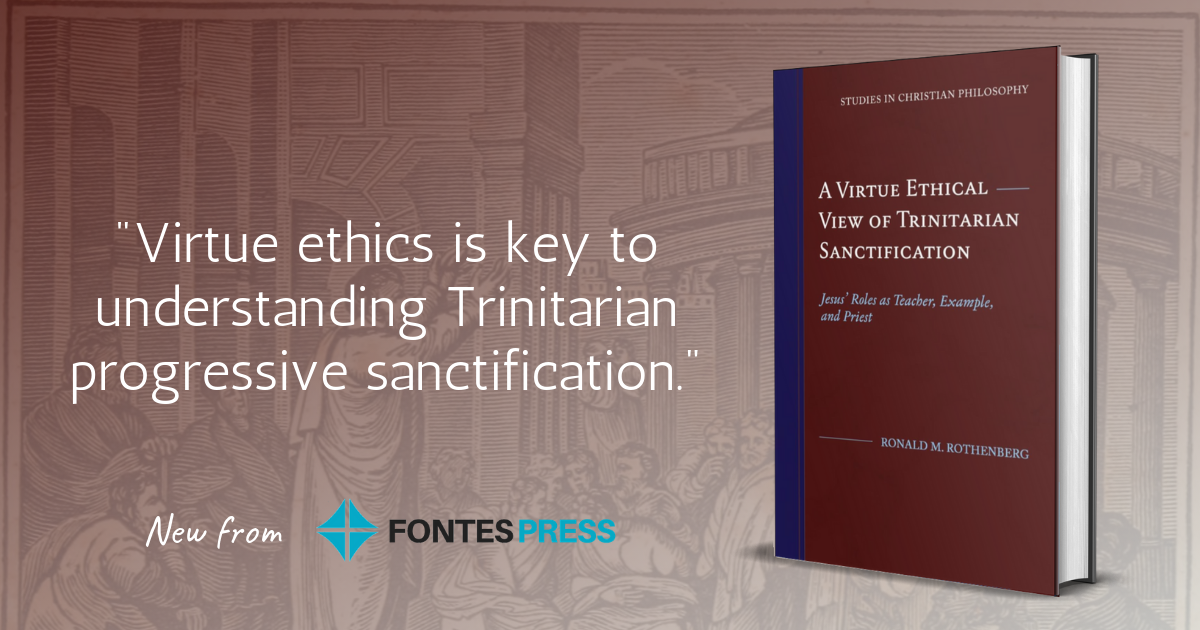
A new book from Fontes Press has inaugurated the new Studies in Christian Philosophy series. Ronald Rothenberg tackles a complex, but important question, namely, what ethical theory is consistent with the biblical view of sanctification, and how is the Trinity involved in the growth of the believer?
As Rothenberg summarizes his own work,
The thesis of this book is that virtue ethics is key to understanding Trinitarian progressive sanctification. The thesis is supported by four reasons: (1) the Trinity, virtue ethics, and sanctification are historically and conceptually interconnected in the tradition and Scripture; (2) virtue ethics based on metaphysical realism is the most biblically consistent ethical framework for Trinitarian progressive sanctification; (3) Jesus’ active roles as a teacher and example of virtue play an important part in Trinitarian sanctification; and (4) Jesus’ priestly heavenly intercession aimed at manifesting virtue in believers is crucial to understanding how the Trinity progressively sanctifies believers.
I think this book is significant for its scope and its interdisciplinary nature. The traditional view of virtue ethics has not often been tied to sanctification in a robust and comprehensive manner, especially with regard to Jesus’ active roles in the believer’s growth in virtue. That is, Aristotle’s exposition of virtue ethics involves the growth of character through habitual practice of the virtues. The end result is εὐδαιμονία, which is the flourishing of the person. But how does this square with the Bible, which presents humans as unable to habitually practice the virtues?
Rothenberg tackles metaphysics, ethical theories, theology of sanctification, and exegesis of relevant texts in this one monograph, demonstrating his grasp of an interwoven tapestry of disciplines as well as his mastery of the relevant secondary literature. I believe he does a laudable job of explaining virtue ethics, presenting sanctification as a growth in virtue, but then (crucially) explaining how the persons of the Godhead, particularly Jesus, are active in that growth in virtue.
For a long time, I wanted to write a book like this. I’m glad that Rothenberg has done it first. I’ll be coming back to its arguments more than once to understand how virtue ethics is the key to understanding Trinitarian progressive sanctification.

